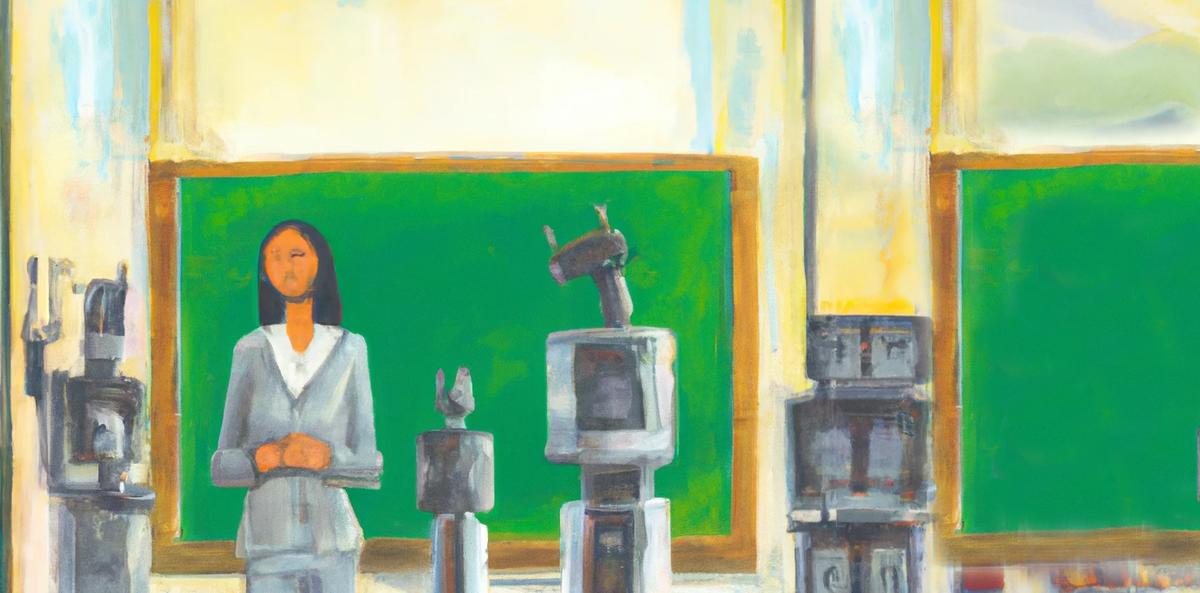The world of artificial intelligence is evolving rapidly. Bringing digital assistants into our lives through smartphones and devices may have made us more comfortable engaging with AI, but with enhanced capabilities, we find ourselves facing new concerns with generative AI.
The use of AI services like ChatGPT and Midjourney can make it cheaper and easier to engage in deception. Students can use these services to write different kinds of content, ranging from social media posts to cover letters to college essays, introducing a new “breed” of plagiarism to the classroom. Academic integrity has always been critical to teacher student relationships and these new tools can create unique challenges. While these technologies are new, associate professor of philosophy Alexis Elder has been looking into the impact of AI and relationships long before ChatGPT started writing poetry and geography reports. Her research into the intersection of human and machine can help us better understand these challenges, and how to navigate them.
Header image: AI and Human generated artwork, created by DALL-E2, from the prompt "A teacher confronted by robotic students in the classroom, oil on canvas," then edited by a human in Adobe Photoshop.
Alexis Elder

“Good social relationships rely on trust, on taking what people say in good faith. People are worried about chatbots faking things like student essays, job cover letters, and dating site messages, content that should have provided insight into that person’s knowledge or personality. So it puts us in this weird position where—with good reason!—we’re scrutinizing each other, and questioning whether the people we deal with are even human. In the academic environment, that has the very real potential to sour the student-teacher relationship. The question is how to responsibly balance concerns about deception with the trust and openness necessary for good learning and good relationships.”
About Alexis Elder
Dr. Elder is an Associate Professor of Philosophy at UMD. She works in technology ethics, social philosophy, philosophy of technology, and moral psychology. She tends to draw on ancient philosophy, primarily Chinese and Greek, in order to think about current problems. Teaching interests include a variety of courses in applied ethics, where she enjoys working with students to explore the many ways philosophical issues can crop up in practical concerns.
Contact:
Email: [email protected]
Phone: 218-726-7850
Related Publications:
“How could you even ask that? Considerability, uncertainty, and vulnerability in social robotics” - Digital Commons
“Discussing AI and Academic Integrity” - University of Minnesota Duluth
